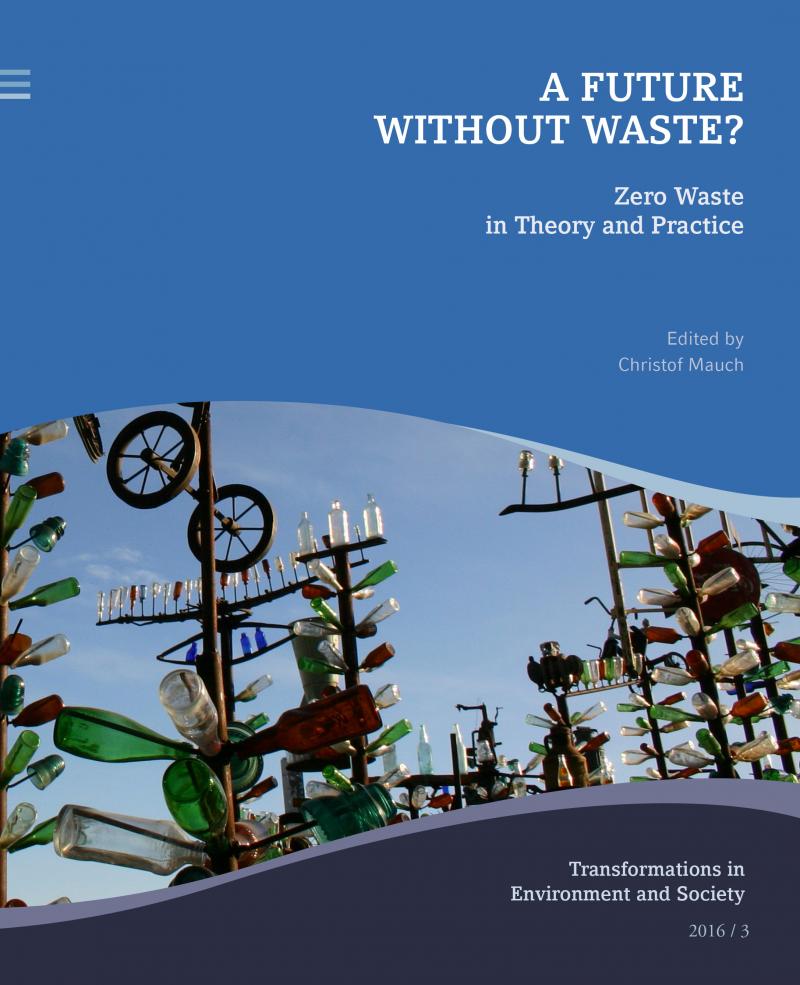About this issue
Today, in an era of consumerism and cheap, throwaway products, we are producing more waste than ever. In response, many are calling for radical changes in our habits and lifestyles; companies and municipalities are embarking on ambitious plans to become “zero waste.” But is a world without waste truly achievable? The essays in this volume of RCC Perspectives discuss zero waste as a vision, as a historical concept, and as an international practice. Going beyond the motto of “reduce, reuse, recycle,” they reflect on the feasibility of creating closed material cycles and explore real-world examples of challenges and successes on the way to zero waste.
How to cite: Mauch, Christof, ed. “A Future without Waste? Zero Waste in Theory and Practice,” RCC Perspectives: Transformations in Environment and Society 2016, no. 3. doi.org/10.5282/rcc/7540.

Content
- Introduction: The Call for Zero Waste by Christof Mauch
Visions
- An Impossible Ideal: The Use and Misuse of Zero Waste by Tian Song
- Learning to Love Our Ecological Footprint by Michael Braungart
- Why Wait for the Future? There Could be a Present without Waste by Herbert Köpnick
Lessons
- Waste Utopias: Lessons from Socialist Europe for the Twenty-First Century by Zsuzsa Gille
- Upcycling in History: Is the Past a Prologue to a Zero-Waste Future? by Carl Zimring
Transitions
- Ways Out of the Waste Dilemma: Transforming Communities in the Global South by Jutta Gutberlet
- The Zero Garbage Affair in Bogotá by Stefania Gallini
Roundtable
- Working for Zero Waste in Germany: A Discussion across Disciplines by Eveline Dürr, Martin Faulstich, Christof Mauch, Heike Rieke, Markus Vogt


